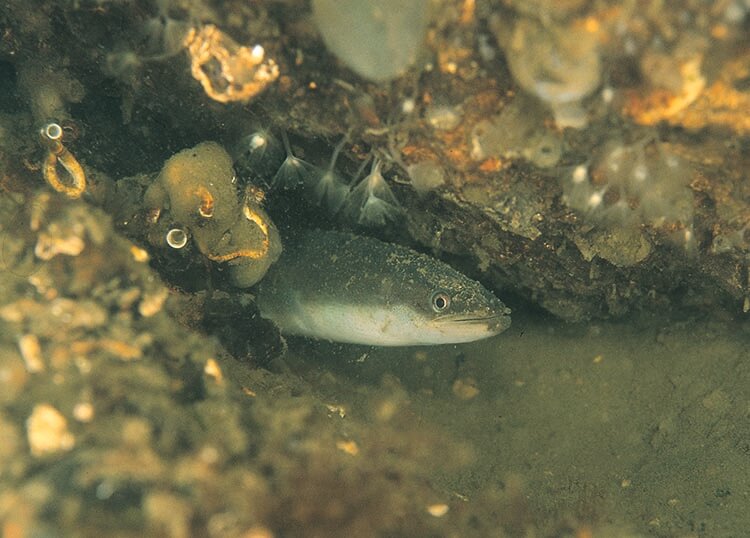
By DIVE Staff
The Marine Conservation Society has updated its Good Fish Guide in line with the latest scientific advice, and the charity says that mackerel is no longer a sustainable seafood choice.
The Good Fish Guide is the MCS’s flagship tool for identifying sustainable seafood, and uses a simple traffic light system to help consumers and businesses make informed choices about seafood sold or produced in the UK: Green for the ‘Best Choice’ most sustainable options; amber for an ‘OK Choice’, but improvements are needed; and red indicating unsustainable ‘Fish to Avoid’.
The latest update to the Good Fish Guide moves Northeast Atlantic mackerel from its long-held place on the green list to the amber list, as the population of the fish has been in steady decline in recent years.
Mackerel is caught by a number of different countries, including Norway, Iceland, the UK, and across the EU, however, none are working together to tackle overfishing of the species. While there is a general agreement that scientific limits on catches should not be exceeded, MCS reports that there is no agreement on how the catch should be divided, meaning quotas have been regularly exceeded by as much as 80 per cent since 2009.
Related articles

In October 2021, the main fishing states agreed that total mackerel catches in 2022 should not exceed the scientifically-advised limit of 794,920 tonnes, but failure to agree on the division of the catch led to a combined limit for 2022 of 1,131,416 tonnes – an excess of 42 per cent. Negotiations during 2023 have so far yet to agree on a way forward in tackling the overfishing.
Mackerel is an important species for the UK fishing industry, which takes about 17 per cent of the total catch, worth around £240 million in 2021. Mackerel is also, however, important prey for whales, dolphins, and tuna, hence a substantial decline in populations could have a much wider environmental impact.
Charlotte Coombes, Good Fish Guide Manager, at the Marine Conservation Society, said, ‘The northeast Atlantic mackerel population has been declining since 2015, which is concerning. Fishing communities and wildlife depend on this species, but continued overfishing is putting both at risk.
‘International cooperation is the only way to fix this problem, and UK governments must lead by example. We need to see countries agree on quotas, and extra management measures being put in place to protect stocks.’

One example of management measures seen to be having a positive impact is a mackerel fishery in the southwest UK which uses strictly limited its catch to the use of handlines – its produce remain on the Good Fish Guide green list as a result.
A total of 186 ratings on the Good Fish Guide were reviewed by the MCS, with 15 species moving on to the green-rated ‘Best Choice’ list, and 20 moving to the red-rated ‘Fish to Avoid’ joining other red-listed species in dangerous decline, such as European eel and Celtic cod.
Jack Clarke, Sustainable Seafood Advocate at the Marine Conservation Society said, ‘Eel is still appearing on menus across the country, despite being more endangered than the Bengal tiger. Populations have declined by as much as 95% in the past decade and recent scientific advice couldn’t be clearer- it’s time to stop eating eel. It’s the most trafficked animal on the planet, with an illegal eel trade estimated to be worth £2.5 billion every year.’
Celtic cod, also staying red-rated, is often caught by boats catching haddock and whiting, as they are often found together in the marine environment.
MCS is calling on governments to ensure better management of fish stocks, with more data to be collected via Remote Electronic Monitoring – cameras on boats – to help scientists make informed decisions about how much seafood to catch and reduce overfishing.
The latest sustainable seafood advice from the Good Fish Guide can be found at: www.mcsuk.org/goodfishguide; to learn more about the Marine Conservation Society’s work, visit www.mcsuk.org.


